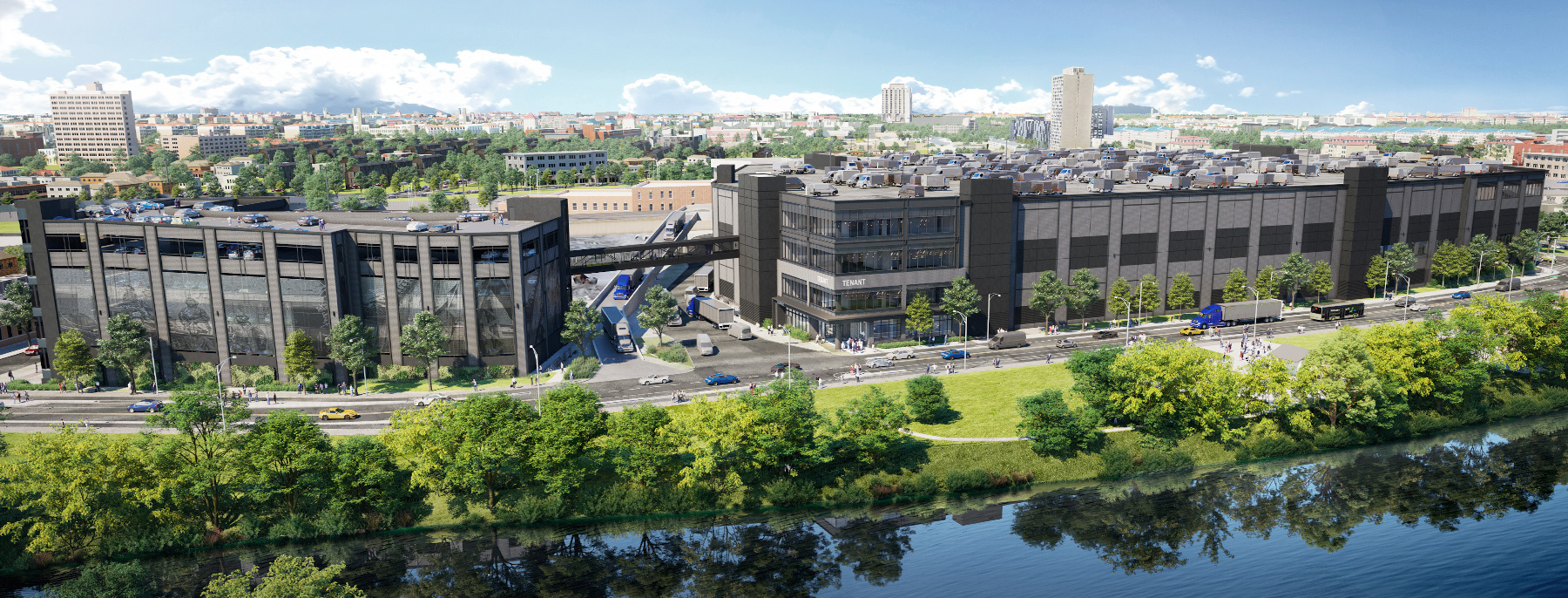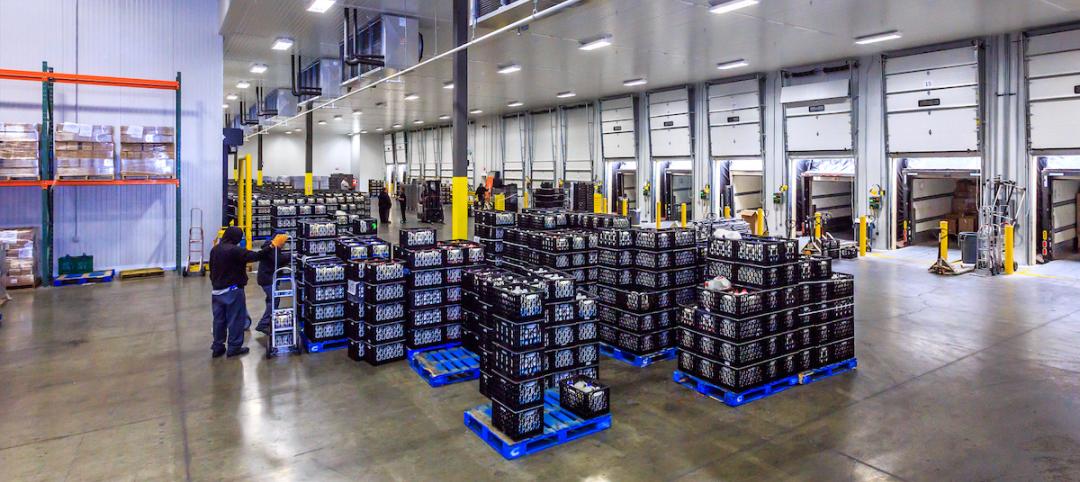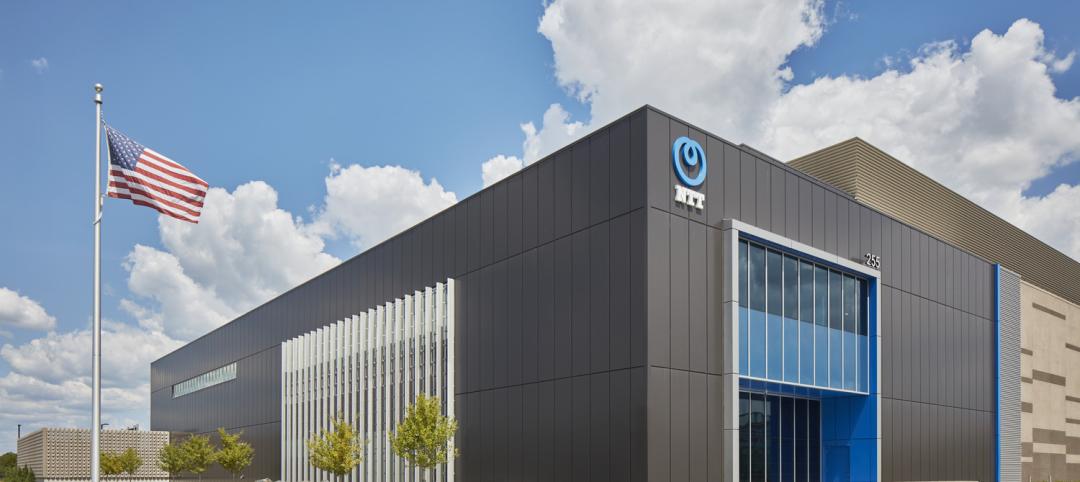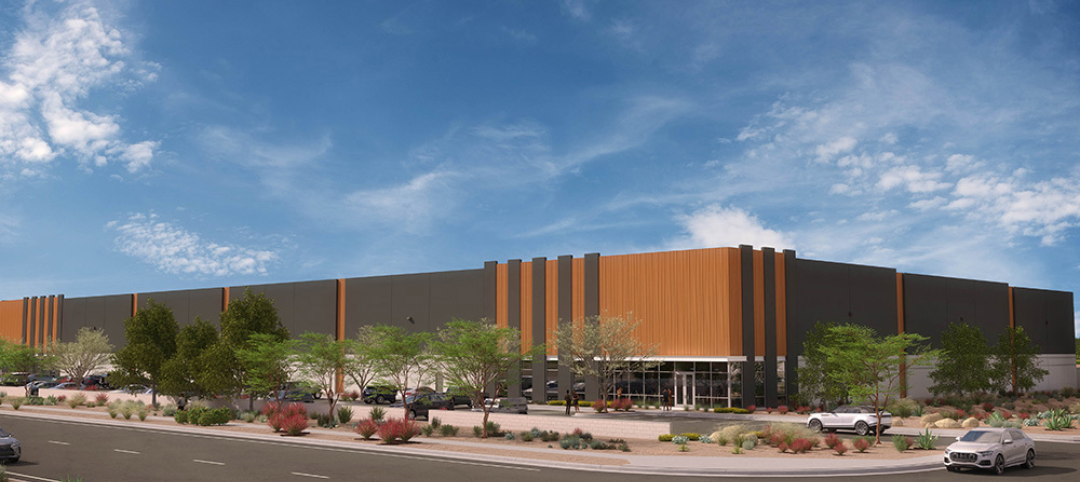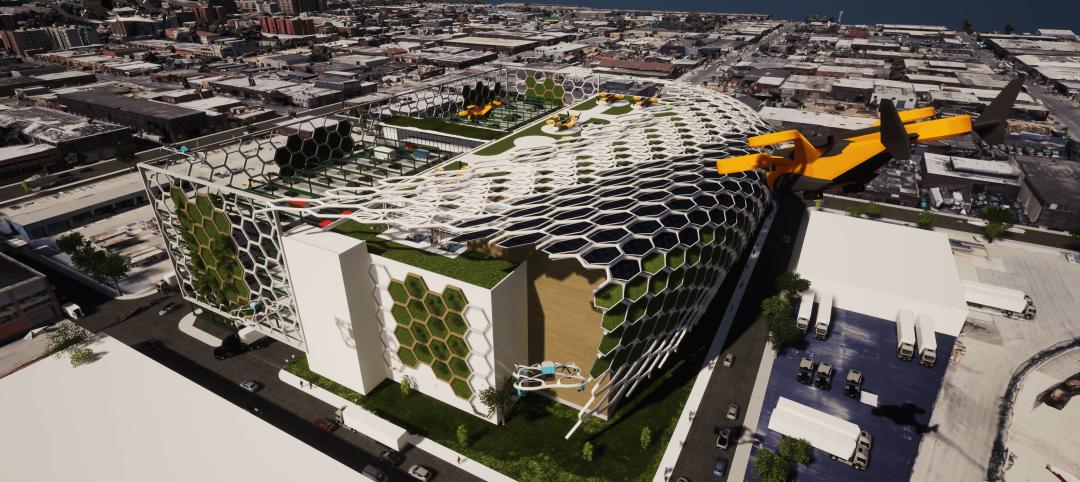For the past several years, Industrial has been one of the hottest sectors in commercial construction. Through August 31 of this year, there were 566.71 million square feet of industrial space for manufacturing and distribution under construction, according to CommercialEdge’s National Industrial Report for September 2023.
However, construction starts in this sector through August dropped to 204.3 million sf, from 614.2 million in 2022 and 586 million sf in 2021. Concerns about inflation, supply chain snags, and labor have made speculative development in this sector riskier. And as e-commerce has flattened, demand for logistics centers has “normalized,” according to CommercialEdge.
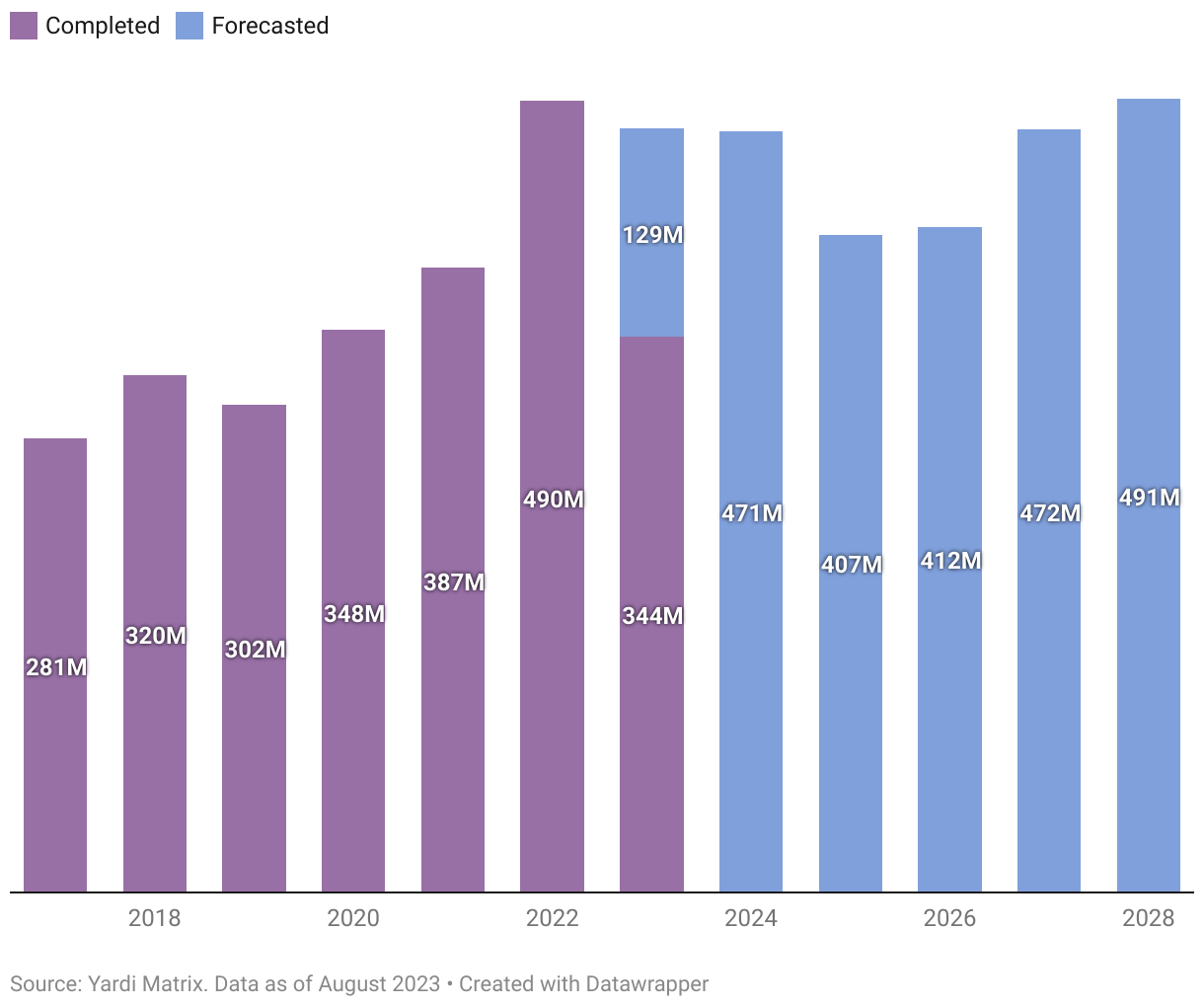
The Dallas-Fort Worth Metroplex led all metros with 51.89 million sf of industrial space under construction as of August 31, the equivalent of 5.8 percent of its total rentable stock. Phoenix had 51.31 million sf under construction, 14.1 percent of its total stock, including Airpark Logistics Center, a three-building 1.4 million-sf facility developed by Creation and designed by LGE Design|Build, which just opened in the suburb of Goodyear, Ariz. And in southern California, which has the largest logistics cluster in the nation, the Inland Empire had 31.81 million sf of industrial space under construction.
Most of the 21.2 million sf under construction in Houston were for logistics parks, estimates CommercialEdge.
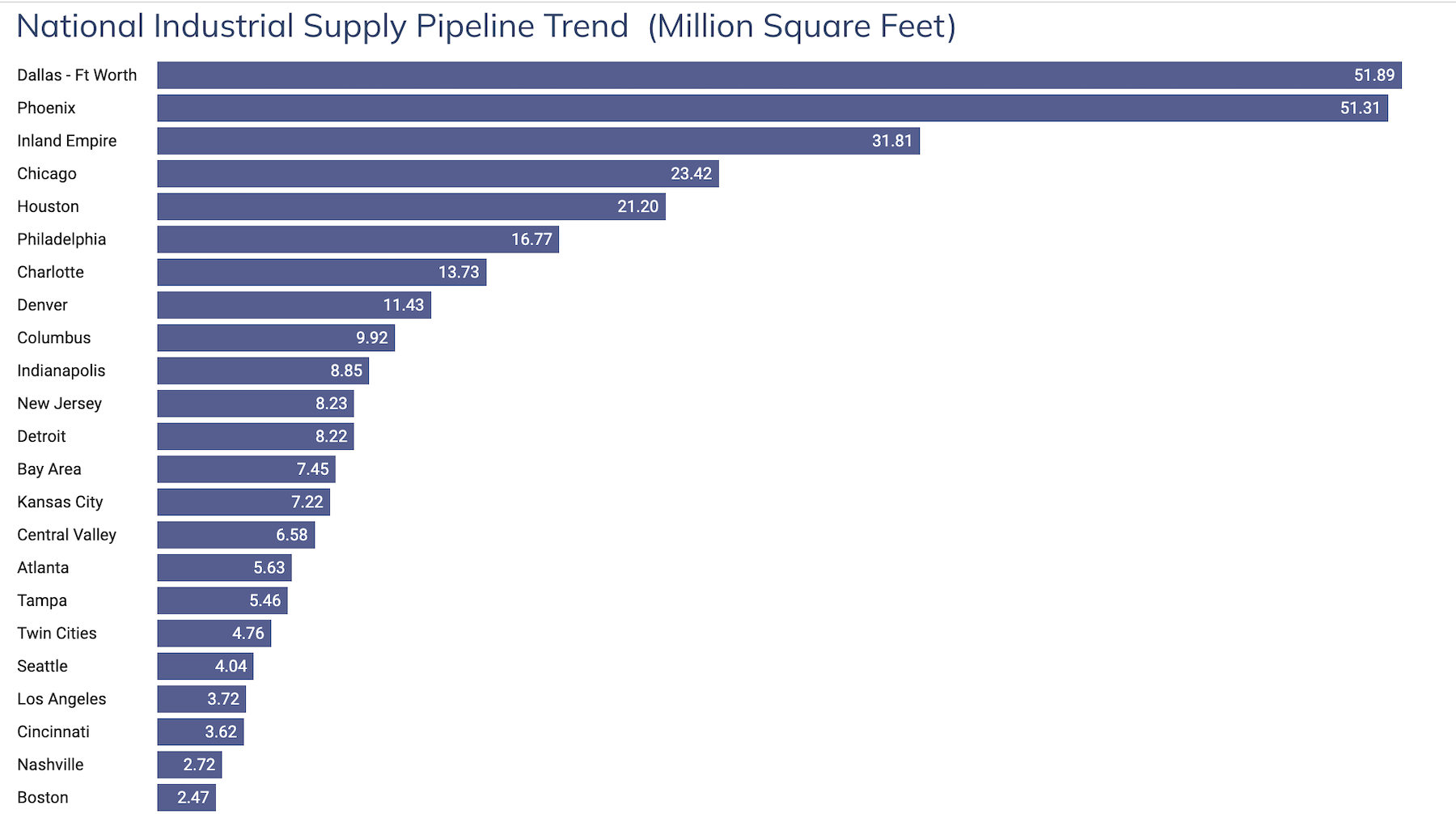
While construction activity is expected to dip slightly next year and then more steeply in 2025 and 2026, CommercialEdge is predicting rebounds in 2027 and 2028. And the current trend toward a “just in case” inventory strategy has meant that logistics centers are getting bigger to carry the extra goods.
More markets building multistory warehouses
Chicago, at 23.42 million sf, is among the top five markets for new industrial construction. One of the projects there is 1237 W. Division Street, the region’s first multistory logistics facility. The 1.2 million-sf building, which is scheduled for completion in the third quarter of 2024, is located downtown in Chicago’s Goose Island neighborhood. With a 36-ft clear height and 1,600 vehicle parking spaces, 1237 W. Division will serve more than $2 billion in ecommerce customers within a five-mile radius.
The Chicago facility is one of five case studies examined in JLL’s Fall 2023 report on Multistory Warehouses.
JLL’s report includes a history of urban logistics, which in New York City dates back to 1900. The report also notes how the U.S. has been a relative newcomer to multistory warehouse development, compared to land-constrained markets in Europe and Asia (the latter of which has some warehouses that are 22 floors).
Because vertical warehouses often provide development solutions under tight land conditions, automobile parking is a crucial component, says JLL. Typically, these facilities double as last-mile distribution and fulfillment centers. In New York, for example, projects either under construction or in the planning/proposal stage total 9.4 million sf of additional last-mile logistics space.
One of JLL’s case studies is the 385,000-sf Red Hook Logistics Center in Brooklyn, N.Y., which opens next year and, according to JLL, “combines multiple levels of ultramodern Class A functionality with immediate access to one of the country’s largest concentrations of consumers.” The building will have 19 dock-high doors, eight drive-in doors, and a 31-ft 4-inch clear height.
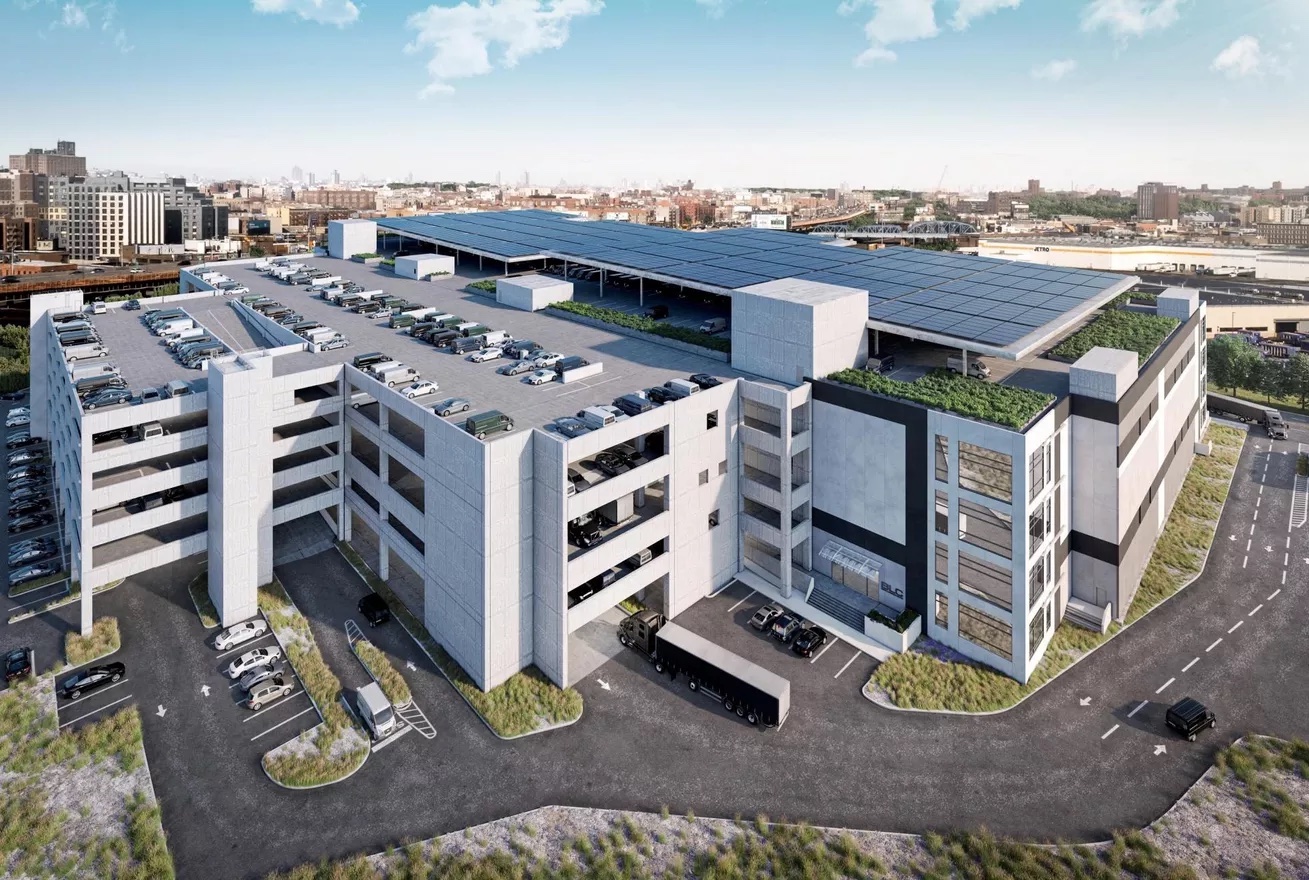
The 1.3 million-sf Bronx Logistics Center, which opened in the second quarter of this year, is the largest such facility in New York City, and the first on the East Coast built to earn LEED Platinum certification. The building has two warehouse floors, each 250,000 sf, accessed nearly 800 ft from one another through separate entrances. It has 48 loading docks, and the single-largest availability of parking in the market. Bronx Logistics is also distinguished by its rooftop greenery and solar array.
JLL states that while coastal cities, because of their population densities and costly land, have, until recently, been the primary markets for urban logistics development, they are now being joined by metros like Atlanta, Miami, Dallas, Houston, and Seattle (where, ironically, the first multistory warehouse in the U.S. was built. Called Georgetown Crossing, this three-story 590,000-sf facility opened in 2018).
Opportunities call for agile design
JLL’s report cites opportunities and challenges in the future of last-mile buildings. Developers must grapple with outdated zoning, NIMBYism, land availability and growing competition for that land from developers of assets like hotels and housing.
Developers and their AEC partners must be agile in their architectural and design considerations. Where should the loading docks be? Should the building include offices? How should the building’s roof be utilized?
Developers need to account for where warehouse employees and delivery trucks will park. And to what extent should new technologies, like electric bikes and scooters and EV chargers be incorporated into the building’s operational and delivery strategies?
JLL’s report advocates for human-centric design, and anticipates that acquisitions are likely to shape the industrial sector’s future.
Related Stories
Laboratories | Apr 12, 2024
Life science construction completions will peak this year, then drop off substantially
There will be a record amount of construction completions in the U.S. life science market in 2024, followed by a dramatic drop in 2025, according to CBRE. In 2024, 21.3 million sf of life science space will be completed in the 13 largest U.S. markets. That’s up from 13.9 million sf last year and 5.6 million sf in 2022.
Industrial Facilities | Apr 9, 2024
Confessions of a cold storage architect
Designing energy-efficient cold storage facilities that keep food safe and look beautiful takes special knowledge.
Data Centers | Feb 28, 2024
What’s next for data center design in 2024
Nuclear power, direct-to-chip liquid cooling, and data centers as learning destinations are among the emerging design trends in the data center sector, according to Scott Hays, Sector Leader, Sustainable Design, with HED.
Designers | Feb 23, 2024
Coverings releases top 2024 tile trends
In celebration of National Tile Day, Coverings, North America's leading tile and stone exhibition, has announced the top 10 tile trends for 2024.
MFPRO+ News | Feb 15, 2024
UL Solutions launches indoor environmental quality verification designation for building construction projects
UL Solutions recently launched UL Verified Healthy Building Mark for New Construction, an indoor environmental quality verification designation for building construction projects.
Industrial Facilities | Jan 29, 2024
How big-ticket, government-funded investments in industrial developments are affecting private construction companies
Large sums of money remain in bank accounts for government-funded programs like the CHIPS Act, the Infrastructure Investment and Jobs Act, and the Inflation Reduction Act. But with opportunities come challenges.
Self-Storage Facilities | Jan 25, 2024
One-quarter of self-storage renters are Millennials
Interest in self-storage has increased in over 75% of the top metros according to the latest StorageCafe survey of self-storage preferences. Today, Millennials make up 25% of all self-storage renters.
Industry Research | Jan 23, 2024
Leading economists forecast 4% growth in construction spending for nonresidential buildings in 2024
Spending on nonresidential buildings will see a modest 4% increase in 2024, after increasing by more than 20% last year according to The American Institute of Architects’ latest Consensus Construction Forecast. The pace will slow to just over 1% growth in 2025, a marked difference from the strong performance in 2023.
Industrial Facilities | Nov 14, 2023
Some AEC firms are plugging into EV charging market
Decentralized electrical distribution is broadening recharger installation to several building types.
Industrial Facilities | Nov 1, 2023
A new concept for multistory warehouses focuses on efficiency
Ware Malcomb’s design idea suggests drone delivery, automated stacked packing, and a sustainable building.


